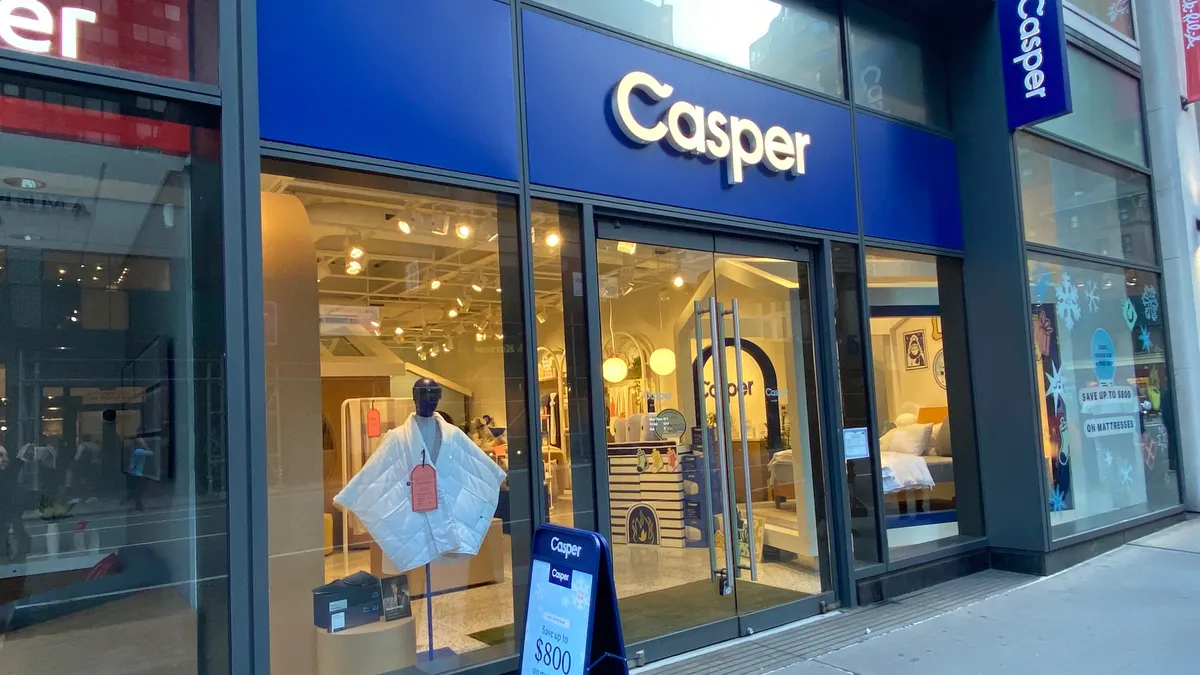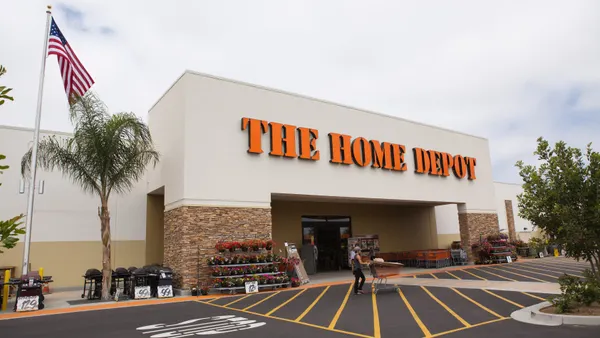Dive Brief:
- The era of selling exclusively online has leveled off in the U.S. as DTC brands embrace a flexible, hybrid distribution model to capture and keep customers in a post-pandemic world, according to a recent study from GlobalData.
- Many DTC brands have adapted their strategies to sell through several platforms — including via pop-up stores, permanent locations, wholesale partners and on their own website — which may be the key to scaling their businesses and meeting customers where they shop, per the study.
- Key DTC trends that are allowing brands to grow and remain relevant include third-party partnerships, subscriptions, personalization, loyalty programs, having a physical presence and fostering intimate connections, GlobalData found.
Dive Insight:
While many brands continue to launch and build their brands online, many are discovering that in order to scale, forming wholesale partnerships and opening brick-and-mortar stores is becoming increasingly necessary, according to GlobalData.
A number of DTC brands have expanded their brick-and-mortar presence in recent months, including Vuori in New York, Lulus in Los Angeles, Rhone in Boston and Wilson at the Mall of America in Bloomington, Minnesota. Others have turned to wholesale partners as a way to expand their distribution: Our Place in October began selling through Target, Adore Me launched a line with Walmart and Care/of entered Sam’s Club. Allbirds in 2022 expanded its wholesale reach by partnering with REI, Public Lands and Nordstrom, and last month, began selling on Amazon.
"Overall, the diverse performance and innovations of DTC brands prove that the model is no longer one size fits all,” Neil Saunders, managing director of retail at GlobalData, said in a statement. “While wholesale may be the path to success for some brands, others are reaping the benefits of stronger margins through DTC channels, proving that the business model can still be a strong avenue for growth.”
DTC flourished during the pandemic as consumers were homebound and online retailing became the desired mode of shopping. However, many DTC brands witnessed a marked slowdown in their online numbers post-pandemic, the report noted.
Such DTC brands as Peloton and Wayfair, both of whom relied mostly on online sales, suffered significant quarterly losses post-pandemic as consumers returned to stores in droves and slowed their online purchases. Sales at Wayfair declined 11% year over year in 2022, while Peloton — whose fiscal year ended on June 30 — saw sales fall nearly 22% year over year.
“The most successful brands in the near future will be those willing to adapt and react quickly to changes in consumer buying habits, and as we have seen in the last few years, brands stuck in their ways will be left behind,” Saunders said.













